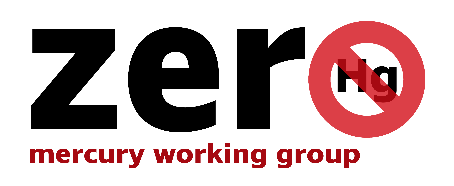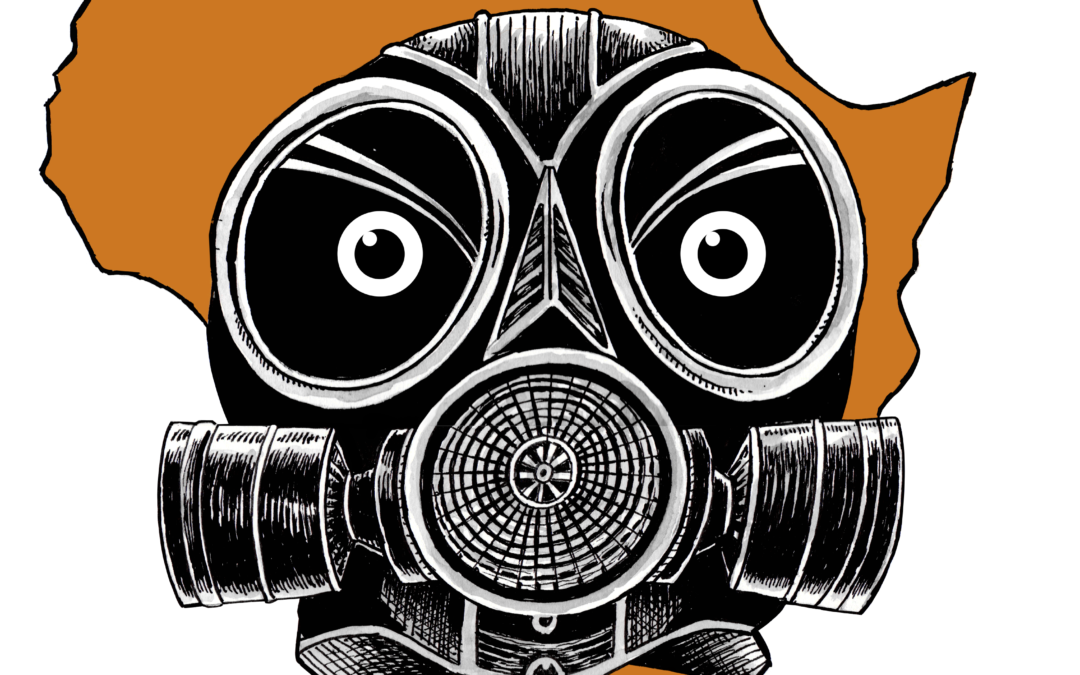
Contact: Rico Euripidou, E: ; T: Leslie Adogame, E: ; T: Michael Bender, E: ; T: 1-802-917-8222; Charline Cheuvart, T: +32 2 289 13 08
AFRICA PROPOSES TREATY SALES BAN ON MERCURY SKIN LIGHTENERS
Johannesburg, South Africa. Recently, the African Region proposed to amend the Minamata Convention to ban the sale and offering of sales of mercury-added cosmetics, including skin lightening products. The Zero Mercury Working Group applauded the proposal.[i]
“Over the years, the African region has taken a leadership role in phasing out mercury in products, including in lighting, dentistry and now skin lightening cosmetics,” said Rico Euripidou from groundWork in South Africa. “Toxic cosmetics are a global mercury crisis warranting coordinated international collaboration.”
African-focused studies reveal why mercury laced cosmetics are such an acute health risk.
- A South African study revealed that nearly 50 percent of the top 10 bestselling skin-lightening creams contained mercury.[ii]
- A study conducted in Ghana found that 70 percent of patients with kidney disease had a history of using bleaching creams.
- A Nigeria study found that over 30 percent of women who used bleaching creams experienced skin irritation.[iii]
“Even in countries like Nigeria that have banned manufacture and trade, mercury-added cosmetics are still widely available,” said Leslie Adogame, Executive Director of the Sustainable Research and Action for Environmental Action. “Since most come from outside the country, more must be done globally to curtail sales and use.”
This past February, the Nigerian Agency for Food Drug Administration and Control (NAFDAC) declared the use of bleaching creams as a national health emergency in the country.[iv] Dr. Abubakar Jimoh, Director Public Affairs NAFDAC, said that the agency required the media to combat the bleaching epidemic among Nigerians, saying “NAFDAC cannot do it alone.”[v]
Other African countries have issued similar declarations. In 2018, the Rwandan government began enforcing a nationwide ban on cosmetics containing harmful chemicals like mercury, making it illegal to produce or sell most skin lightening cosmetics.
And in August 2022 Cameroon’s health ministry banned the import, production and distribution of cosmetic and personal hygiene products containing dangerous substances such as mercury.[vi]
“Despite the Convention’s ban on manufacture and trade, the proliferation and sales of mercury cosmetics continues unabated in local markets and increasingly though the internet.”, said Michael Bender, International Co-coordinator, Zero Mercury Working Group. “To date, these major online platforms are not held accountable for facilitating the sale of often illegal high mercury cosmetics. If adopted, the sales ban can help prevent marketing of toxic and often illegal cosmetics.”
Although there are no official figures on how many women use such products across Africa, billboards advertising the potentially deadly creams can be seen in cities across the continent.[vii]
“The current sales ban proposal on mercury-added products reflects the willingness of many African countries to drive the mercury change envisioned by the Minamata Convention in their countries,” said Charline Cheuvart, Mercury Policy Officer at the European Environmental Bureau. “The upcoming COP should endorse this forward-looking initiative and make it part of the fight against mercury pollution worldwide and the effort to #MakeMercuryHistory.”
At least ten African countries have adopted regulations to curtail toxic skin lighters, including South Africa, Kenya, Côte d’Ivoire, Ghana, Uganda, Tanzania, Rwanda, Nigeria, Cameroon and South Sudan. Since 2015, eight of those ten countries have taken steps to curtail toxic cosmetics.
For more information:
[1] Currently, the Convention requires that Each Party shall not allow, by taking appropriate measures, the manufacture, import or export of mercury-added Cosmetics (with mercury content above 1ppm), including skin lightening soaps and creams. Yet their use, both from local markets and the internet, continues to proliferate., due in part to the lack of national sales bans.
[2] Skin-lighteners are sold as creams, lotions and soaps. ZMWG testing indicates that hundreds if not thousands of them are available in the global market. Those that use mercury as an active ingredient often contain from 2 to 10 percent mercury by weight.
[3] Products tested in a variety of countries in Africa, Asia and Latin America, Europe and North America have contained from less than 1 to 57,000 parts per million (ppm) mercury. Unfortunately, the most effective ingredients, which include mercury compounds and hydroquinone, may be the cheapest, and that induces many manufacturers to use them in products, despite their well-documented toxic hazards.
[4] Violations of consumer, health and safety laws not only threaten public health, but create an uneven playing field since ‘brick and mortar’ stores must comply with domestic laws that may be evaded online by E-commerce platforms.
[5] Mercury lightens the skin by suppressing the production of melanin and can also remove age spots, freckles, blemishes and wrinkles. Adolescents also use SLPs, as mercury acts as an anti-bacterial for the treatment of acne.
[6] For more information, see the World Health Organization fact sheet: https://apps.who.int/iris/bitstream/handle/10665/330015/WHO-CED-PHE-EPE-19.13-eng.pdf
[7] The Minamata Convention on Mercury: https://mercuryconvention.org/en
[8] The Zero Mercury Working Group Skin Lightening Campaign: www.zeromercury.org/mercury-added-skin-lightening-creams-campaign
***
[i] https://mercuryconvention.org/sites/default/files/documents/2023-04/EN_Africa_Amendment%20Proposal_Cosmetics_March_2023.pdf
[ii] Dlova NC, Hendricks NE, Martincgh BS. Skin-lightening creams used in Durban, South Africa. Int J Dermatol 2012; 51(Suppl. 1):51–3. https://onlinelibrary.wiley.com/doi/full/10.1111/bjd.13556
[iii] https://leadership.ng/despite-health-hazards-bleaching-creams-remain-top-taste-for-nigerian-women/
[v] https://tribuneonlineng.com/bleaching-creams-cause-kidney-disease-cancer-nafdac/
[vi] https://www.premiumbeautynews.com/en/skin-whitening-products-remain,20896
[vii] https://www.theguardian.com/world/2015/may/07/ivory-coast-bans-potentially-deadly-skin-whitening-creams



